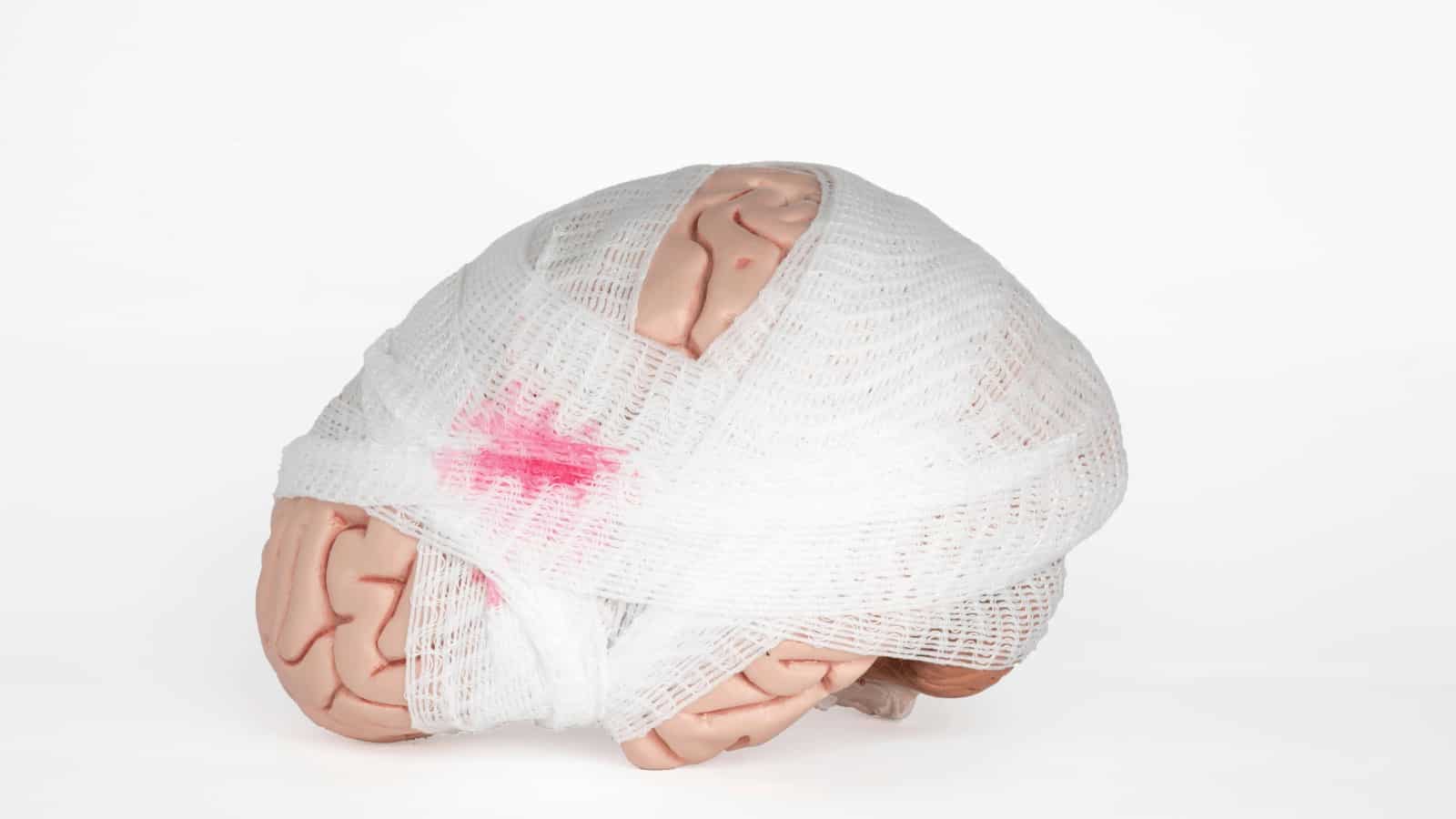A promising new study shows that yoga and meditation may help people with brain injury recover faster. Rebecca Acabchuk, a yoga teacher and post-doctoral fellow at the University of Connecticut, inspired the research. The study was recently published in the journal Applied Psychology: Health and Well-being.
Rebecca studied mild trauma occurring in brain injuries while earning her doctorate in physiology and neurobiology at UConn. There, she crossed paths with a student-athlete who had experienced several concussions. The student seemed to have perplexing symptoms that never seemed to go away on their own.
The student-athlete told Rebecca about her strange symptoms – every time a smoke alarm went off in her dorm, she had a seizure. While she figured they had something to do with her concussions, she didn’t know why they occurred or how to alleviate them.
A brain injury often gets overlooked or undertreated.
“All of these symptoms she would have to struggle with — really profound symptoms — are an invisible injury,” says Acabchuk, who earned her Ph.D. in 2016. She now works as a post-doctoral fellow at UConn’s Institute for Collaboration on Health, Intervention, Policy, or InCHIP. “People think you should be better. The injury happened so long ago. Why aren’t you better? And then more frustration comes in when your doctor says to rest, there’s nothing else that can be done, but you’re still getting headaches or feeling fatigued or depressed.”Acabchuk said that many others came to her with similar stories when she first began her research on concussions. Anytime someone suffered a concussion, families at her daughter’s school would open up about their personal struggles. Unfortunately, a majority of them had symptoms that “just didn’t resolve,” and the families wanted answers.
While doctors often have difficulty treating persistent concussion symptoms, Acabchuk feels hopeful about the new research into mindfulness-based interventions. For 17 years, a yoga teacher knows firsthand about using the mind to help our bodies heal. The recently published InCHIP study marks the first-ever meta-analysis to investigate how yoga, meditation, and mindfulness can treat brain injury symptoms. She hopes that the observations gleaned from the research will help people dealing with chronic concussion symptoms.
“This was really a passion project for me in the sense that it combines these two areas of interest, concussion work with yoga and meditation,” says Acabchuk, lead author of the study. “We know from other studies that yoga and meditation may be helpful for reducing systemic inflammation, and we know that they are helpful for increasing self-compassion and reducing rumination if people are dealing with symptoms of depression.”
The study
Many previous studies analyzing the effects of yoga, meditation, and mindfulness on brain injury symptoms have been relatively small. For the meta-analysis, Acabchuk and her team analyzed data from 22 different studies, including unpublished and published research. Altogether, their research included 539 participants and investigated the effects of the healing modalities on various aspects of people’s lives.
They analyzed the participants’ mental and physical health, cognitive functioning, quality of life, and social/work performance. Then, they studied how yoga, meditation, and mindfulness, impacted the participants’ health outcomes, such as depression, anxiety, fatigue, and attention span. Finally, the research team used complex meta-analytical procedures to organize and assess the results of these studies. Says Acabchuk:
“The main results that we saw were significant reductions in depression and fatigue. Especially with fatigue, it was a large effect size, which is impressive in the sense that fatigue is a difficult symptom for patients to deal with.”
The team found that almost all measured outcomes improved when patients underwent mind-body interventions like yoga from their comprehensive analysis. Because of the studies’ diversity in participants and the difficulty in treating brain injury symptoms, the researchers considered this remarkable.
However, Acabchuk explains that they will need to research how concussion patients can benefit from mindfulness-based treatments. Specifically, researchers and the public need a better understanding of how yoga and meditation alleviate and heal brain injury symptoms. Though more studies are needed, it never hurts to include mindfulness practices in a patient’s treatment plan. Yoga and meditation have no negative side effects, so a person experiencing brain injury symptoms can only benefit from the practices.
“Think of the brain almost like an ACL — if you tear your ACL, you’re going to rest it, but you’re also going to take steps to rehabilitate it,” Acabchuk says. “If you think of the brain in that sense, a concussion is also like a rehabilitation injury in that, through rehabilitation, you can strengthen certain pathways in the brain. And we think the tools to help do that are breath-work, meditation, and mindful movement through poses from yoga.”
How to start with meditation or yoga
If you have never meditated before, she recommends downloading a meditation app or joining a mindfulness group. This way, you can learn the basics and start with small increments of meditation, such as 10 minutes a day. However, if you prefer more movement, you may enjoy yoga instead. You can begin with gentle, easy poses and stretches designed to unite the body and mind, providing overall healing.
If both of those don’t appeal to you, you can also practice deep breathing. Simply sitting in silence to increase awareness of your body and breath can help reduce overall inflammation. While you won’t notice these benefits immediately, remaining consistent with the practices will gradually increase your quality of life.
“I really do hope that this helps empower people who are struggling with their symptoms,” Acabchuk says.
Final thoughts on a study showing how yoga can help brain injury recovery
The first-ever meta-analysis of its kind showed how yoga, meditation, and mindfulness could prove useful in brain injury recovery. A yoga teacher and Ph.D. from the University of Connecticut found that mindfulness treatments improved symptoms in nearly 540 patients. While more research is needed, Acabchuk is hopeful about the future of these treatment plans for patients with brain injuries.
















 Community
Community

